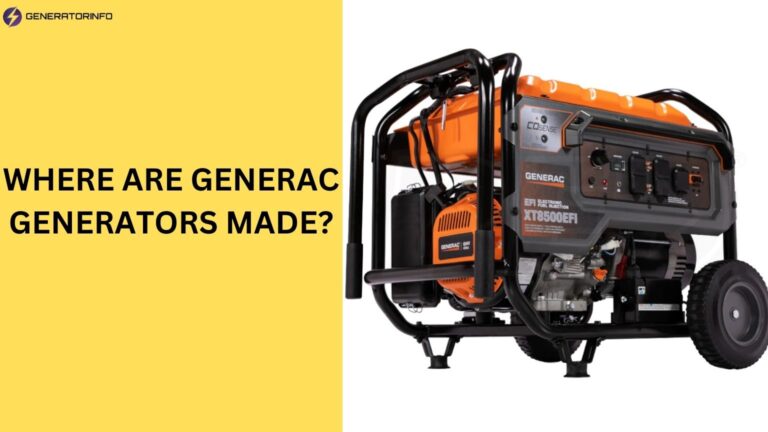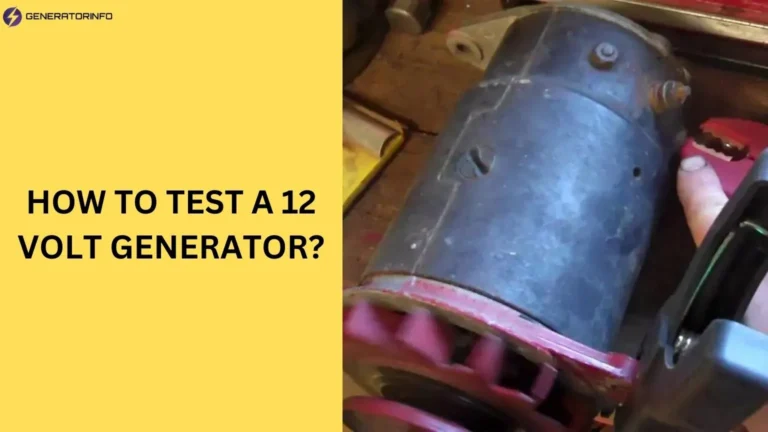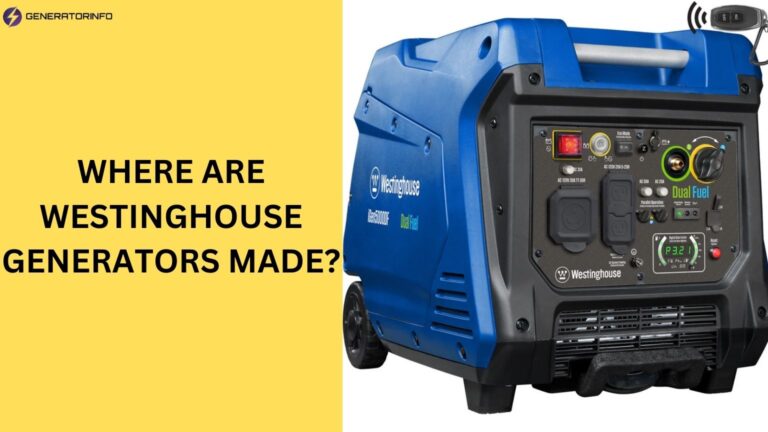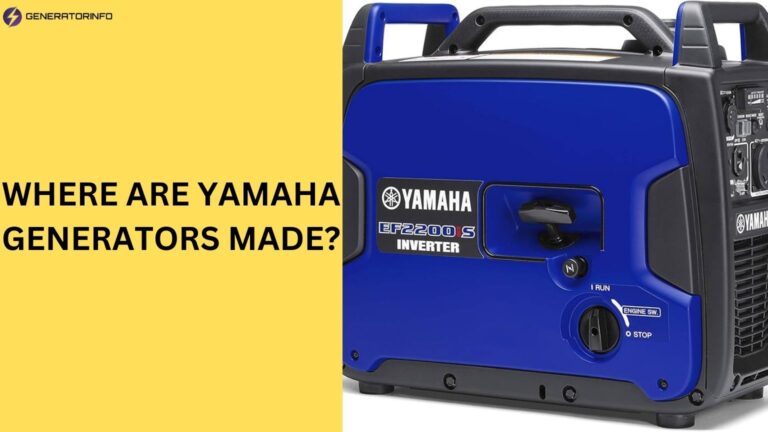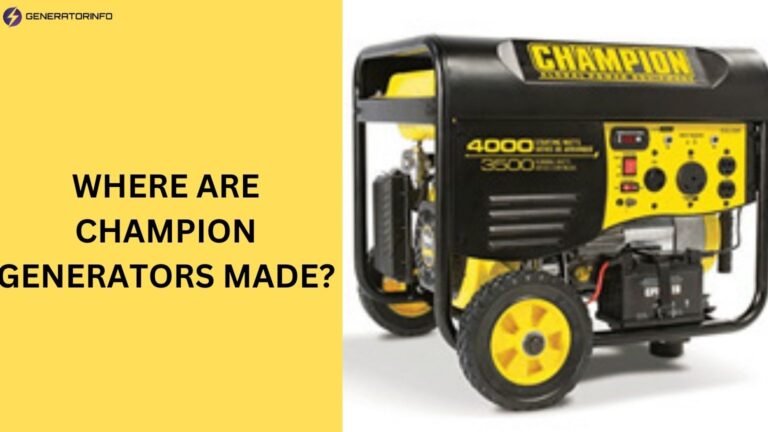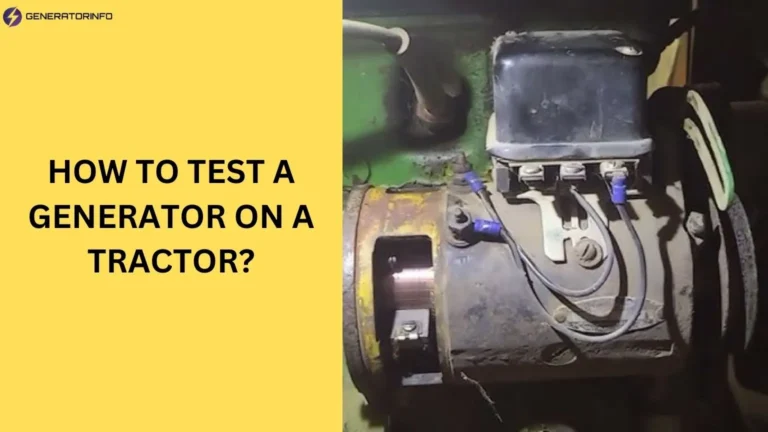How Does an Inverter Generator Work? (Guide) In 2025
In today’s world, having a reliable power source is essential for various activities, whether you’re camping, during a power outage, or simply needing extra power for your home. One of the best solutions is an inverter generator.
But how does an inverter generator work? Let’s dive into the inner workings of this incredible device and discover what makes it so popular!
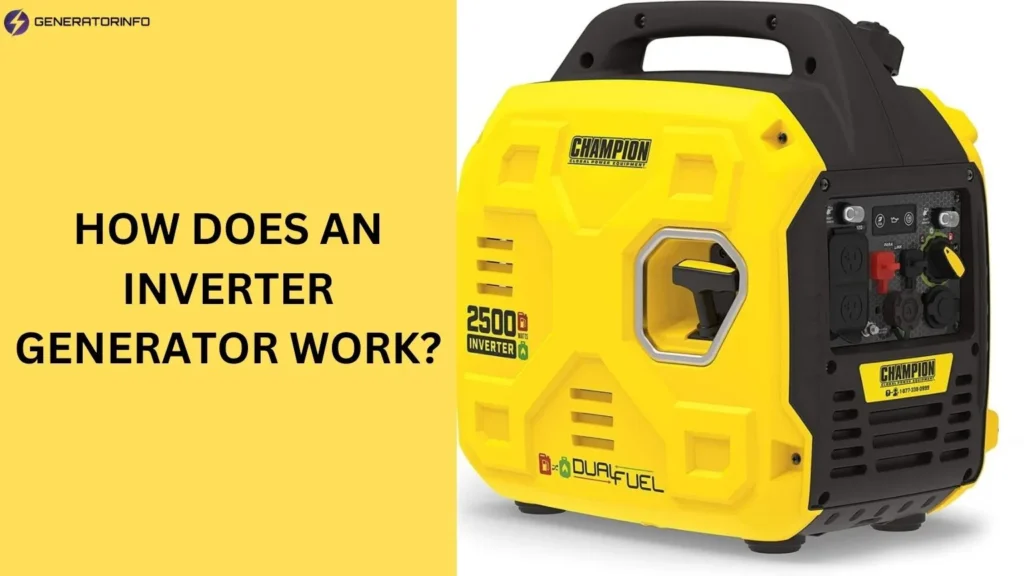
What Is an Inverter Generator?
Before we discuss how it works, let’s clarify what an inverter generator is. An inverter generator is a type of generator that produces electricity using a different method compared to traditional generators.
While conventional generators create electricity through mechanical energy and often produce power with fluctuating voltage, inverter generators convert this power into a smoother, more stable electrical output.
Key Features of Inverter Generators
- Compact Size: Inverter generators are typically lightweight and portable, making them easy to transport for camping or tailgating.
- Quiet Operation: These generators are designed to run quietly, which is perfect for residential areas or outdoor events.
- Fuel Efficiency: Inverter generators adjust their engine speed based on the load, resulting in better fuel efficiency compared to conventional models.
- Clean Power Output: They provide a stable power output that is safe for sensitive electronics, such as laptops and smartphones.
How Does an Inverter Generator Work?
Understanding how an inverter generator works involves breaking down its components and processes. Let’s explore this step by step.
1. The Engine
Every inverter generator starts with an engine, usually powered by gasoline. This engine generates mechanical energy through combustion. As the engine runs, it powers the alternator, which is essential for producing electricity.
2. Alternator Conversion
The alternator is the heart of the inverter generator. It converts the mechanical energy from the engine into alternating current (AC) electricity. However, the electricity produced at this stage is not stable enough for most electronic devices.
3. Rectification
After the AC is generated, it goes through a rectifier. The rectifier converts the AC electricity into direct current (DC). This step is crucial because it helps in stabilizing the voltage before it is converted back into AC power.
4. Inversion
This is where the magic happens! The DC electricity is fed into an inverter. The inverter converts the DC power back into clean, stable AC power. The process of inversion ensures that the output voltage is smooth and regulated, making it safe for your devices.
5. Control System
Inverter generators are equipped with a sophisticated control system that monitors the load and adjusts the engine speed accordingly. This feature not only improves fuel efficiency but also reduces noise levels since the engine only runs as fast as needed.
Benefits of Using an Inverter Generator
Now that we understand how an inverter generator works, let’s look at some benefits of using one:
1. Quiet Performance
One of the biggest advantages of inverter generators is their quiet operation. Whether you’re at a campsite or your backyard, you won’t have to deal with the loud noise that traditional generators produce.
2. Portable Power
Inverter generators are designed for portability. Their compact size and lightweight nature make them easy to carry, which is perfect for outdoor adventures.
3. Versatility
Whether you need power for your home during an outage or for recreational activities, inverter generators can handle a variety of tasks. They can power small appliances, tools, and sensitive electronics without any risk of damage.
4. Eco-Friendly Operation
Because inverter generators are more fuel-efficient and produce less emissions than traditional generators, they are an eco-friendlier option. This makes them suitable for environmentally conscious individuals.
People also ask
What are the disadvantages of an inverter generator?
Here are some disadvantages of an inverter generator:
Higher Cost: Inverter generators are generally more expensive than traditional generators due to their advanced technology and features.
Lower Power Output: They typically produce less power compared to conventional generators, making them unsuitable for heavy-duty applications or powering large appliances.
Maintenance Needs: With more complex components, inverter generators may require more frequent maintenance or specialized servicing.
Limited Fuel Options: Most inverter generators run on gasoline, which may limit fuel flexibility compared to some conventional models.
What is the difference between a generator and an inverter generator?
The key differences between a generator and an inverter generator are:
Power Output: Traditional generators produce AC power directly, often with fluctuating voltage, while inverter generators convert AC to DC, then back to stable AC, making it safer for sensitive electronics.
Fuel Efficiency: Inverter generators adjust engine speed based on power demand, making them more fuel-efficient, whereas conventional generators run at a constant speed.
Noise Levels: Inverter generators are much quieter compared to conventional generators.
Portability: Inverter generators are generally lighter and more compact, making them easier to transport.
Can an inverter generator power a house?
Yes, an inverter generator can power a house, but it depends on the generator’s size and power output.
Small inverter generators are ideal for running essential appliances like lights, refrigerators, and electronics during outages, but they may not be sufficient for heavy-duty devices like HVAC systems.
For full-home backup power, you’d need a larger, more powerful inverter generator.
Can an inverter generator run a refrigerator?
Yes, an inverter generator can run a refrigerator. Most inverter generators, especially those with a power output of at least 2000 watts, can easily handle the startup surge and running power required by a typical refrigerator.
Their stable power output also ensures the refrigerator runs safely without damaging sensitive components.
Conclusion
Understanding How Does an Inverter Generator Work? is essential for anyone considering investing in portable power solutions.
With their compact design, quiet operation, and clean energy output, inverter generators have become increasingly popular for various applications.
Whether you’re camping, tailgating, or simply need backup power at home, an inverter generator can provide a reliable and efficient source of electricity.

